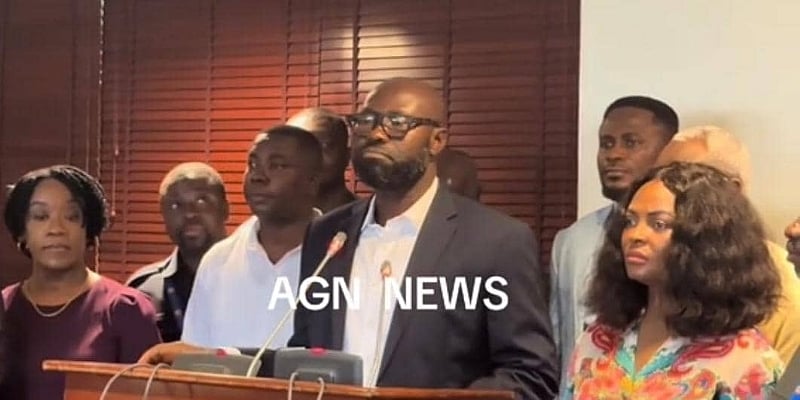The political landscape of Ghana is currently embroiled in a contentious debate surrounding the operations of the Oral Team, a parliamentary group led by North Tongu MP, Samuel Okudzeto Ablakwa. The Minority Caucus in Parliament has taken a firm stance against the team, issuing a directive to its members to reject any requests or invitations from the Oral Team, denouncing their activities as unconstitutional and tantamount to harassment of former government officials. This directive, delivered through a press conference addressed by Suame MP, John Darko, has further fueled the already simmering controversy surrounding the Oral Team and its mandate.
At the heart of the Minority Caucus’s concerns is the perceived overreach of the Oral Team’s authority. John Darko argues that the team’s actions, which include entering homes, seizing vehicles, and reclaiming lands, effectively duplicate and undermine the roles of established law enforcement and investigative bodies such as the police, the Economic and Organized Crime Office (EOCO), and the Special Prosecutor. This perceived duplication of effort not only raises questions about the legality of the Oral Team’s actions but also casts doubt on the government’s respect for due process and the established rule of law. The Minority Caucus contends that the Oral Team’s activities are creating a parallel system of justice, bypassing established procedures and potentially jeopardizing the rights of individuals, particularly those associated with the previous administration.
Further exacerbating the situation is the apparent endorsement of the Oral Team’s operations by the Minister for Justice and Attorney General Designate. John Darko expressed his dismay at the Minister’s justification of the team’s activities during his appearance before the appointments committee. He argued that as a law professor, the Minister should have recognized the potential constitutional breaches and condemned the Oral Team’s actions, rather than offering his support. This perceived endorsement from a high-ranking legal authority adds another layer of complexity to the debate and raises questions about the government’s commitment to upholding constitutional principles.
The Minority Caucus views the Oral Team’s actions as a politically motivated witch-hunt targeting former government officials. They argue that the team’s focus on individuals associated with the previous administration suggests a partisan agenda, rather than a genuine pursuit of justice. The seizure of properties and assets, without due process, fuels this perception of persecution and raises concerns about the potential for abuse of power. The Minority Caucus’s decision to boycott the Oral Team’s requests is a direct response to this perceived persecution and an attempt to protect its members from what they see as an illegitimate and politically motivated investigation.
The controversy surrounding the Oral Team highlights a broader tension within Ghana’s political landscape. The accusations of partisan bias and the disregard for established legal procedures raise fundamental questions about the separation of powers and the integrity of the investigative process. The Minority Caucus’s boycott represents a significant escalation of the conflict and underscores the deep divisions within Parliament. The public call by John Darko for Ghanaians to be vigilant and resist any form of persecution or harassment further amplifies the political ramifications of this ongoing dispute.
The future of the Oral Team and its operations remains uncertain. The Minority Caucus’s boycott, coupled with growing public scrutiny, will likely force a reevaluation of the team’s mandate and its methods. The government will need to address the concerns raised regarding the legality and constitutionality of the Oral Team’s activities to restore public trust and ensure that the pursuit of justice is conducted within the bounds of the law. The ongoing controversy underscores the importance of upholding democratic principles and respecting the rule of law, even in the face of political disagreements. The resolution of this conflict will be a crucial test for Ghana’s political system and its commitment to transparency and accountability.


